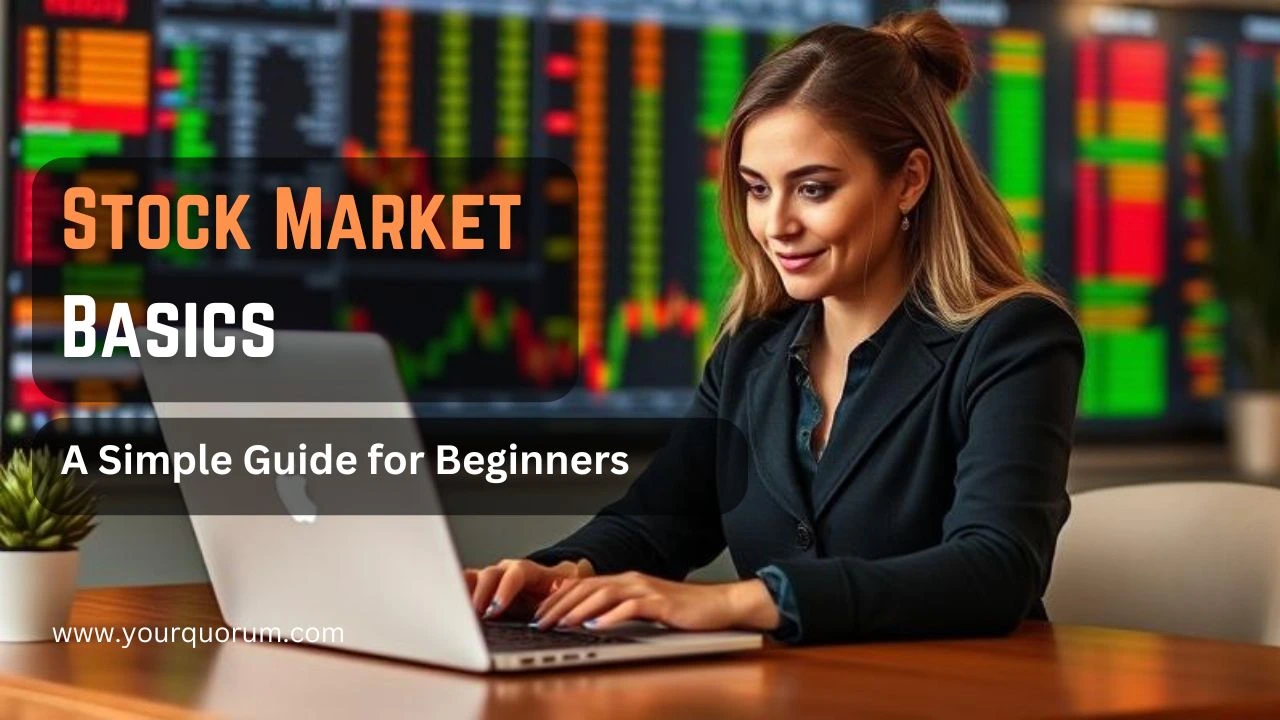
The stock market is a giant grocery store* where buyers and sellers exchange tiny portions of corporations. These differents pieces are known as stocks or shares. When you own shares of a stock, you own a small piece of that company.
Let us say, for example, your favorite pizza joint sells 100 shares. So if you buy 1 share, does that mean you own 1% of that pizza place? If your pizza place is a hit, your slice is worth more. If it does well, your share appreciates in value.
People buy stocks, hoping their value will go up, after which they can sell them for a profit.
The stock market is an auction, period. A price will be agreed on by buyers and sellers, and the trade is made. Most stocks are traded on big markets such as the New York Stock Exchange (NYSE) and NASDAQ.
Investors– People who buy stocks to hold them for a long time.
Traders– People who buy and sell stocks quickly to make fast profits.
Brokers– Companies (like Robinhood or Fidelity) that help you buy and sell stocks.
Companies– Businesses that sell shares to raise money.
Stock prices change because of:
Supply & Demand– If more people want to buy a stock, its price goes up. If more people want to sell, the price drops.
Company News– Good news (like big profits) makes stocks rise. Bad news (like losing money) makes them fall.
Economy– If the economy is strong, stocks usually go up. If it’s weak, stocks may drop.
Fear & Greed– When people get scared (like during a crisis), they sell stocks fast. When they’re excited, they buy more.
If you want to watch stock prices, you can use free tools like:
Shows stock prices, news, and charts.
You can search for any company (like Apple or Tesla) and see its stock history.
Tracks theVIX (Volatility Index), which measures how scared or calm investors are.
Works like Yahoo! Finance but is simpler.
You can compare different stocks easily.
Also tracks theVIX, helping you see if the market is risky or stable.
Related :How To Make Money Through Network Marketing?
TheVIX(also called the "fear index") tells us how nervous investors are.
High VIX (Above 30)= People are scared, and stock prices swing wildly.
Low VIX (Below 20)= People are calm, and the market is steady.
You can check the VIX onYahoo! FinanceorGoogle Financeby searching "VIX."
Open a Brokerage Account– Use apps like Robinhood, Fidelity, or E*TRADE.
Research Stocks– Look at companies you know (like Disney or Nike).
Start Small– Buy just 1 or 2 shares first.
Be Patient– Don’t panic if stocks drop; they usually recover over time.
Yes, if a company goes bankrupt, its stock can become worthless. But if you spread your money across different stocks, the risk is lower.
Some apps let you start with just1(likefractionalshares).But1(likefractionalshares).But100-$500 is a safer start.
There’s no "best" stock. Big companies like Apple or Amazon are usually safer than unknown ones.
Sell if you need the money or if the company’s future looks bad. Otherwise, holding long-term is better.
Stocks = Pieces of real companies.
Crypto = Digital money (like Bitcoin) that’s much riskier.
Thestock marketcan seem scary, but it’s just a place where people trade stocks. Tools likeYahoo! FinanceandGoogle Financemake it easy to track prices. TheVIXhelps you see if the market is calm or nervous.